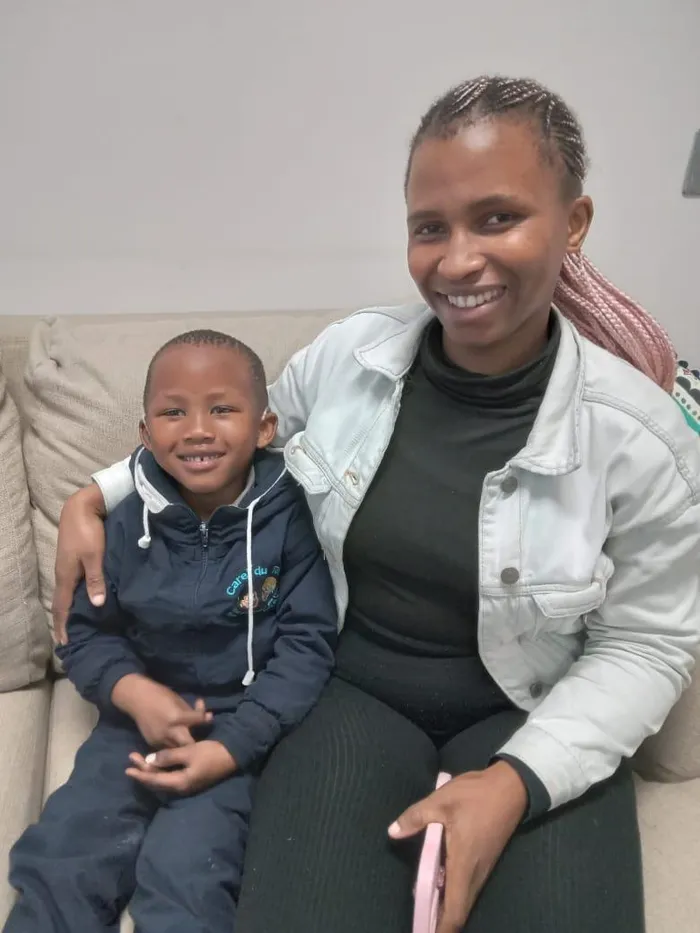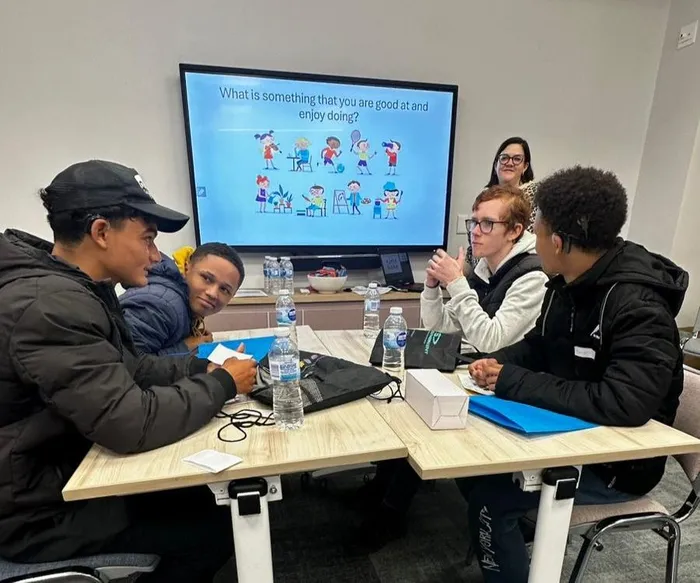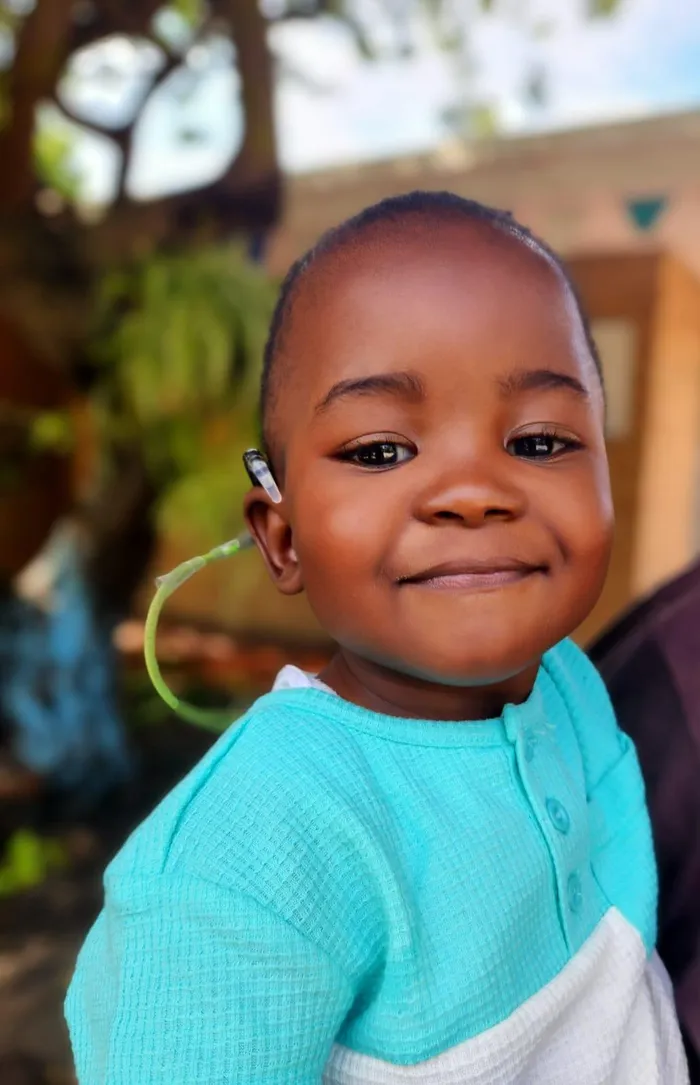Celebrating Deaf Awareness Month: Tygerberg Hospital's commitment to inclusivity

Five-year-old Othaluve, who has cochlear implants, with his mom, Ntombizikhona Nonjeke, from Khayelitsha.
Image: Supplied / Western Cape Government
Commemorating Deaf Awareness Month during September, Cape Town’s Tygerberg Hospital is proud to join the global celebration under the theme #BeyondSilence.
The theme is a call to recognise and address social, cultural, and professional barriers that many deaf individuals face, advocating for improved accessibility and inclusivity.
September is the International Month for Deaf People in commemoration of the first World Congress of the World Federation of the Deaf, which took place in September 1951.
Tygerberg Hospital, in partnership with Stellenbosch University, is proud to operate South Africa’s first and largest cochlear implant programme. Since performing its first implant 39 years ago, the programme has helped over 1,130 people, from a four-month-old baby to a 90-year-old, to access the gift of hearing.

Audiologist Marge van Dyk with cochlear implant (CI) teenagers during a group discussion. From left: Jamie Lewis, Ethan Erasmus, Kai Nortier, and Ruwhaan Fielding.
Image: Supplied / Western Cape Government
Coordinator and Chief Audiologist of the cochlear implant programme at Tygerberg Hospital, Jennifer Perold, said: “Early identification and intervention are essential. By working closely with clinics and hospitals throughout the region, Tygerberg Hospital's audiology department strives to ensure that children with hearing loss are diagnosed promptly and referred for the most appropriate care, an investment that changes the course of their lives.”
As a major referral centre for hearing health, Tygerberg Hospital plays a vital role in supporting facilities across the Western Cape to ensure that every child, from their earliest days, has the best possible start in life.
For individuals with severe to profound sensorineural hearing loss (SNHL) who gain little benefit from hearing aids, cochlear implantation (CI) offers a life-changing solution.
Perold said: “By starting well, detecting hearing loss early, providing timely intervention, and offering lifelong support, Tygerberg Hospital ensures that children have the opportunity to thrive and reach their full potential.”
Early detection and intervention are essential in accessing the right level of hearing care.
Hearing loss, whether present at birth or acquired later, can profoundly affect communication, learning, social interaction, and quality of life.
In South Africa, many newborns still go untested for hearing loss, and the Carel du Toit Trust is working to change this with screening initiatives already making a difference at Tygerberg Hospital.
The Trust (the fundraising arm of the Carel du Toit Centre) highlights the life-changing impact of newborn hearing screening and recently celebrated the powerful and inspiring journey of baby Bunono, whose early diagnosis and access to cochlear implants have enabled him to start speaking - something that wouldn’t have been possible without that first hearing test shortly after birth.
Bunono was born prematurely at the hospital in August 2023, weighing just 1.1kg.

Since his cochlear implant was activated in January 2025, Bunono is babbling like other babies, responding to his name and using words such as “mama”.
Image: Supplied / Carel du Toit Centre
Bunono did not pass his first hearing test. A follow-up test confirmed he had profound hearing loss in both ears. He received hearing aids at five months old, but because his hearing loss was so severe, the aids weren’t enough.
To help him learn to speak – his family’s biggest hope – Bunono needed cochlear implants.
Thanks to a generous donation, Bunono received his cochlear implant in December 2024. Since his implant was activated in January 2025, Bunono is babbling like other babies, responding to his name and using words such as “mama”.
Sarah Lange, head of Audiology at the Carel du Toit Centre, said: “Newborn hearing screening (NHS) leads to early diagnosis of hearing loss in babies born deaf. This allows for early management and intervention, which opens the door for communication development – whether the family chooses spoken or sign language.
“Newborn hearing screening is cost-effective and is shown to be effective at birth facilities and vaccination clinics.”
As a referral centre, Tygerberg continues to guide and support other facilities in identifying candidates for implantation, ensuring more patients can benefit from this life-changing technology. If you or your child is concerned about possible hearing loss:
- Step 1: Visit your nearest clinic or community health centre (Primary Health Care level). Nurses and doctors can perform an initial screening and, if needed, refer you for further assessment.
- Step 2: Referral to District or Regional Hospital. At this level, patients can access diagnostic hearing tests and initial management.
- Step 3: Referral to Tertiary/Quaternary Care. Complex cases, including candidates for cochlear implants, are referred to Tygerberg Hospital and other specialised centres for advanced intervention.
chevon.booysen@inl.co.za
Related Topics: